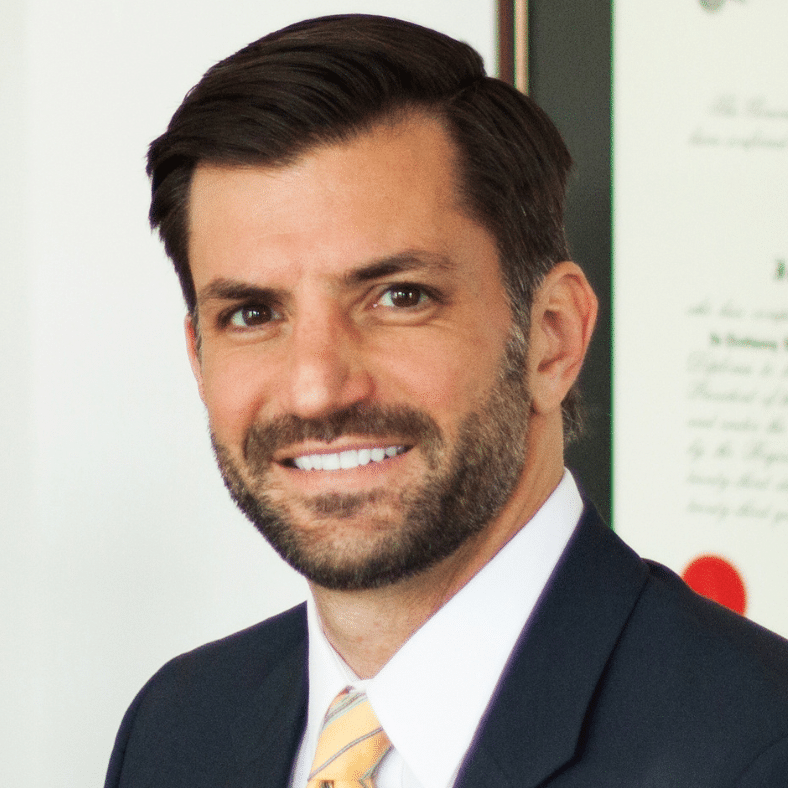Eating Disorder Treatment in Los Angeles
- Los Angeles Mental Health Treatment
- Eating Disorder Rehab in Los Angeles
Living with an eating disorder can feel overwhelming, isolating, and disruptive to every part of life.
Call Us when you Need Help!
Eating Disorder Treatment in Los Angeles
What Is an Eating Disorder?
You are not alone. You deserve to get help.
The Meadowglade is an industry leader in mental health treatment. Our team of top medical experts specialize in dual diagnosis treatment and are committed to ensuring that each patient is treated as an individual. Call us today, we’re available 24/7.
Types of Eating Disorders We Treat
At The Meadowglade, we offer specialized care for a range of eating disorders in Los Angeles.
Each disorder has unique challenges, and our expert team is equipped to provide tailored treatment plans.
Eating Disorders isorders we treat include:
Anorexia Nervosa
Bulimia Nervosa
Binge Eating Disorder
Avoidant/Restrictive Food Intake Disorder (ARFID)
Compulsive Overeating
Rumination
Orthorexia
Other Specified Feeding or Eating Disorders (OSFED)
Eating Disorder Treatment Programs
The Meadowglade provides a continuum of care, ensuring that each client receives the appropriate level of support at every stage of their recovery journey. Each program integrates evidence-based therapies with holistic approaches to treat the whole person—mind, body, and spirit.
Residential Treatment
Residential treatment offers a structured, immersive environment where clients live on-site and receive 24/7 care. For individuals struggling with eating disorders, this program ensures a consistent, supportive routine critical for stabilization and recovery.
- Supervised Meal Times: Clients participate in supervised meals and snacks, guided by dietitians to rebuild a healthy relationship with food.
- Therapeutic Meal Planning: Meal preparation and food exposure therapy help reduce fear and anxiety associated with eating.
- Daily Therapy Sessions: Clients engage in one-on-one counseling, group therapy, and specialized treatments such as Cognitive Behavioral Therapy (CBT) or Dialectical Behavior Therapy (DBT).
- Medical Monitoring: Regular medical check-ups track vital signs and address any physical complications resulting from disordered eating.
Partial Hospitalization Program (PHP)
The Partial Hospitalization Program offers intensive, structured treatment during the day while allowing clients to return home or to a supportive living environment in the evenings. PHP is ideal for those who require a high level of care but have started to stabilize physically and emotionally.
- Daytime Therapeutic Support: Clients attend a full day of therapy sessions, including individual, group, and family therapy, tailored to address disordered eating patterns.
- Nutritional Counseling: Comprehensive guidance from dietitians supports clients in developing balanced meal plans and navigating challenges around food choices at home.
- Meal Exposure Therapy: Clients practice eating in different settings, building comfort and confidence around food-related activities.
- Coping Skills Training: Focus on emotional regulation and stress management to address triggers for disordered eating.
Intensive Outpatient Program (IOP)
The Intensive Outpatient Program provides flexibility for clients transitioning from higher levels of care or those needing support while balancing other responsibilities like school or work.
- Flexible Scheduling: Clients attend therapy sessions multiple times a week, which may include evenings, to accommodate their schedules.
- Focus on Relapse Prevention: Through therapy and support groups, clients learn to identify and manage triggers that could lead to disordered eating behaviors.
- Ongoing Nutritional Support: Nutrition counseling and meal planning sessions continue to reinforce healthy habits.
- Therapeutic Interventions: Group therapy, experiential therapies, and individual counseling sessions address ongoing emotional and psychological challenges.
Outpatient Program (OP)
The Outpatient Program is a less-intensive option designed for clients who are maintaining their recovery while managing daily responsibilities.
- Weekly Support: Clients participate in weekly therapy sessions focused on maintaining recovery, addressing setbacks, and strengthening coping mechanisms.
- Nutritional Counseling as Needed: For clients needing continued guidance, sessions with a dietitian help ensure progress in developing healthy eating behaviors.
- Community Support: Clients can access peer support groups to stay connected and reduce isolation during their recovery journey.
- Focus on Independence: This stage encourages self-accountability while providing professional support when challenges arise.

Signs and Symptoms of an Eating Disorder
Recognizing the signs of an eating disorder is crucial for early intervention. If you or someone you love is experiencing these symptoms, seeking professional help at an eating disorder rehab in Los Angeles can be life-changing.
Physical Symptoms
- Rapid weight fluctuations.
- Gastrointestinal complaints, such as bloating or constipation.
- Fatigue, dizziness, or fainting spells.
- Irregular menstrual cycles or loss of menstruation.
- Dry skin, brittle nails, and thinning hair.
Behavioral Symptoms
- Obsessive calorie counting or food restriction.
- Compulsive exercise despite exhaustion or injury.
- Secretive eating habits or skipping meals.
- Frequent trips to the bathroom after eating.
- Use of laxatives, diuretics, or other methods to purge calories.
Emotional Symptoms
- Intense fear of weight gain or being “fat.”
- Distorted body image or dissatisfaction with appearance.
- Feelings of guilt, shame, or anxiety around eating.
- Withdrawal from social activities involving food.
How Are Eating Disorders Treated?
At The Meadowglade, we employ a multidisciplinary approach to eating disorder treatment, addressing the underlying causes and consequences of the disorder. Every treatment plan is individualized, ensuring that care is as unique as the person receiving it.
Our evidence-based therapies include:
- Cognitive Behavioral Therapy (CBT): Helps clients identify and reframe negative thought patterns to manage anxiety effectively.
- Dialectical Behavior Therapy (DBT): Combines cognitive techniques with mindfulness to regulate emotions and handle distress.
- Group Therapy: Provides a supportive environment where clients can share experiences and learn from others facing similar challenges.
- Family Therapy: Strengthens communication and relationships within families through guided counseling.
- Experiential Therapies: Utilizes activities like art, music, and movement to help clients express emotions and process experiences.
- Education & Career Counseling: Guides individuals in making informed educational and career decisions for personal growth.
- EMDR Therapy: Uses guided eye movements to help process and heal from trauma.
- Equine Therapy: Involves interactions with horses to foster emotional awareness, confidence, and healing.
- Holistic Therapy: Integrates mind, body, and spirit practices like yoga, art, and mindfulness for overall well-being.
- Stress Reduction Therapy: Teaches relaxation, mindfulness, and cognitive strategies to manage stress effectively.
Eating Disorder Statistics in Los Angeles
Understanding the prevalence of eating disorders underscores the importance of seeking treatment. These statistics highlight the urgency of accessing high-quality eating disorder rehab in Los Angeles.
- An estimated 9% of the U.S. population will develop an eating disorder in their lifetime.
- Eating disorders have the second-highest mortality rate of all mental illnesses, following opioid addiction.
- Approximately 26% of individuals with eating disorders attempt suicide.
- Early intervention increases the likelihood of recovery, emphasizing the importance of professional care.
Is Eating Disorder Treatment Effective?
Yes, eating disorder treatment is highly effective, particularly when delivered in a comprehensive, supportive environment like The Meadowglade. Recovery involves rebuilding physical health, emotional stability, and coping skills, allowing clients to live fulfilling lives free from disordered eating behaviors.
While the journey may be challenging, our compassionate team is dedicated to empowering clients with the tools they need for lasting success. Many individuals experience significant improvements in their quality of life, relationships, and self-esteem through our programs.
Begin Eating Disorder Rehab in Los Angeles Today
Don’t let an eating disorder define your life. At The Meadowglade, we provide compassionate, personalized care to help you regain control and rediscover joy. Contact us today to learn more about our eating disorder rehab in Los Angeles and take the first step toward a healthier, brighter future.
Call us now at 888-272-2062 or verify your insurance.
Our Mental Health Specialists
At The Meadowglade, our team of compassionate and experienced mental health professionals is dedicated to providing comprehensive mental health treatment in Los Angeles. Our multidisciplinary team works collaboratively to offer personalized care tailored to each individual’s needs.

Narine Babikian, MHA

Joseph Gulino, MD

Yj Kim, MD
Take A Free Self-Quiz

Yj Kim, MD
Psychiatrist

Haroon Burhanullah, MD
Psychiatrist

Narine Babikian, MHA
Executive Director








